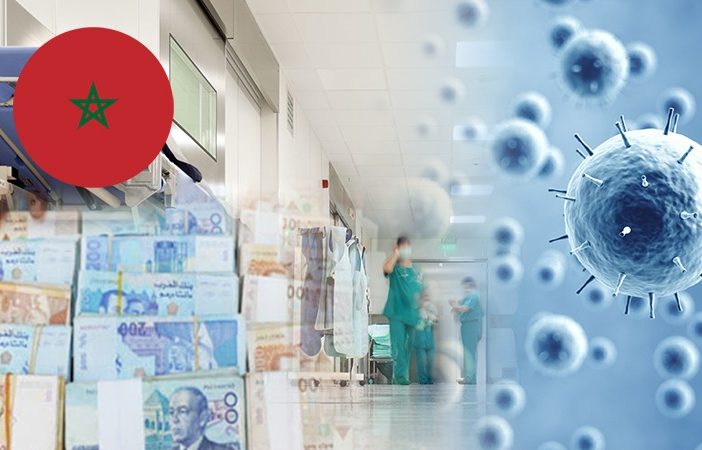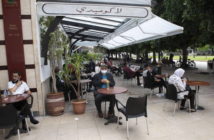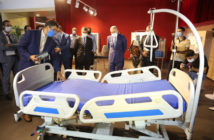The North Africa Post
Morocco will have to act quickly to respond to the scale of changes in the lives of individuals and in several sectors of its economy, particularly that of the informal sector, recommends a report released Monday August 17.
COVID-19 presents a systemic risk creating vulnerabilities, widening inequalities and hindering the achievement of the Sustainable Development Goals (SDGs), underlines the report on the social and economic impact of the coronavirus crisis, co-authored by the High Commission for Planning (HCP), the United Nations System in Morocco (SNUD) and the World Bank (WB).
The pandemic not only triggers a new economic and social crisis, but also highlights the existing gaps in the way countries prepare, respond and recover, states the 14-page report.
The document presents an extensive analysis of the COVID-19 crisis in Morocco and lists five priorities that Morocco should focus on to overcome the COVID-19 crisis, namely health; social protection and essential services; economic relaunch; macroeconomic measures and multilateral collaboration; and social cohesion.
Based on these priorities, the report makes a series of recommendations to overcome the induced challenges.
First, Morocco should elaborate a new model for economic balance and sustainable development, aligned with its SDGs achievements.
The second recommendation is to innovate the collection and analysis of contextualized data in order to include all categories of the population.
Third, Morocco should consider the COVID-19 crisis as an opportunity to reinforce advanced regionalization and valorize the role of NGOs.
The fourth recommendation consists in giving special attention to the evolution of multidimensional poverty and to the scheduling of an inclusive response.
Finally, the report recommends Morocco to invest further in its public medical, educational, and administrative services after the COVID-19 crisis.
The report, which surveys the evolution of the epidemiological situation in the Kingdom, notes that the protective measures and strict lockdown enacted in March were efficient in saving lives, but that with the easing of some lockdown measures in early June, the epidemiological situation “quickly evolved with the appearance of several industrial and familial clusters.”
In terms of socio-economic indicators, the report highlights the sectors most badly hit by the COVID-19 crisis in Morocco, despite efforts to mitigate the pandemic’s impacts.
“Strict measures, extensive financial compensation efforts, and a continuous demonstration of solidarity and hope … have allowed, to some extent, to attenuate the effects of the crisis. Some sectors, however, have been strongly impacted, notably tourism, transport, cultural activities and events, but also, transversally, the informal sector,” the report says.
In this connection, the report underlines that workers in the informal sector are the hardest-hit by the COVID-19 pandemic, explaining that informal workers in Morocco are “generally employed” in sectors particularly vulnerable to the COVID-19 crisis, such as tourism, transport, retail, and the gig economy.
The COVID-19 crisis has also affected badly smaller businesses, with micro-sized businesses and small companies representing 72% and 26%, respectively, of companies that suspended their activities.
Meanwhile, many businesses were able to avoid bankruptcy and to preserve jobs thanks to the support of the special coronavirus management fund, set up to mitigate the impact of the health crisis. The fund actually extended support to vulnerable businesses and stipends to households affected by the pandemic.
Besides the special fund, the document also recalls the amendment of the 2020 Finance Bill to reallocate the state budget to priority sectors.
The document insists that prioritizing support for vulnerable populations and the economic sectors with the highest number of jobs is essential to mitigate the socio-economic damage of the crisis.
Emphasizing the need for the world to achieve the UN’s Sustainable Development Goals (SDGs) after the COVID-19 crisis, the document deems that Morocco has a strong potential to achieve SDGs thanks to its efforts in human development and the fight against climate change. The country has the required basis to put in place a new model for sustainable, inclusive, and equitable development.
The report, recalling Morocco’s royal initiative to send medical aid to over 15 African countries, highlights the North African country’s continental and regional role.
“Regional solidarity and exchange of practices, along with a reinforced South-South cooperation political dialogue could … reinforce the regional pertinence of the Moroccan model characterized by rigor, innovation, and experimentation,” the report says.

POSTED BY NORTH AFRICA POST
North Africa Post’s news desk is composed of journalists and editors, who are constantly working to provide new and accurate stories to NAP readers.







